 W
WZalman Aran was a Zionist activist, educator and Israeli government minister.
 W
WPeter Andreyevich Arshinov, also P. Marin (1886–1937), was a Ukrainian anarchist revolutionary and intellectual who chronicled Nestor Makhno's 1919–1921 uprising.
 W
WIvan Ilyich Babak was a Ukrainian Soviet Air Forces captain, flying ace, and a Hero of the Soviet Union.
 W
WVladimir Aleksandrovich Beklemishev was a Russian sculptor, a rector of the Imperial Academy of Arts.
 W
WPanteleimon "Panteley" Fedorovich Belochub, , was a Ukrainian soldier best known as one of the commanders of the Revolutionary Insurrectionary Army of Ukraine, a major belligerent force during the Russian Civil Wars of 1917 – 1921.
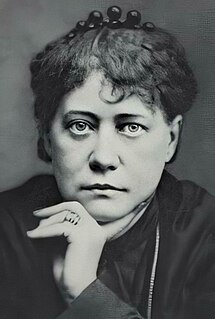 W
WHelena Petrovna Blavatsky was a controversial Russian occultist, philosopher, and author who co-founded the Theosophical Society in 1875. She gained an international following as the leading theoretician of Theosophy, the esoteric movement that the society promoted.
 W
WLeonid Ilyich Brezhnev was a Soviet politician who led the Soviet Union as General Secretary of the governing Communist Party (1964–1982) and as Chairman of the Presidium of the Supreme Soviet (1977–1982). His 18-year term as general secretary was second only to Joseph Stalin's in duration. While Brezhnev's rule was characterized by political stability and notable foreign policy successes, it was also marked by corruption, inefficiency, economic stagnation, and rapidly growing technological gaps with the West.
 W
WAdolph Davidovich Brodsky was a Russian violinist.
 W
WAlexander Pavlovich Chekhov, was a Russian novelist, short story writer, essayist and memoirist, and the elder brother of Anton Chekhov.
 W
WAnton Pavlovich Chekhov was a Russian playwright and short-story writer who is considered to be among the greatest writers of short fiction in history. His career as a playwright produced four classics, and his best short stories are held in high esteem by writers and critics. Along with Henrik Ibsen and August Strindberg, Chekhov is often referred to as one of the three seminal figures in the birth of early modernism in the theatre. Chekhov practiced as a medical doctor throughout most of his literary career: "Medicine is my lawful wife", he once said, "and literature is my mistress."
 W
WNikolai Pavlovich Chekhov was a Russian painter and the brother of Anton Chekhov.
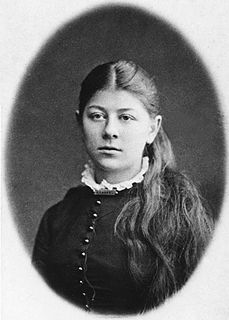 W
WMaria Pavlovna Chekhova was a Russian teacher, artist, founder of the Chekhov Memorial House museum in Yalta, and a recipient of the Order of the Red Banner of Labour. Anton Chekhov was her brother.
 W
WHryhorii Danylovych Epik was a Ukrainian writer and journalist. He supported the Soviet Ukrainization during the 1920s which probably led to his arrest and execution during the Great Purge in the 1930s.
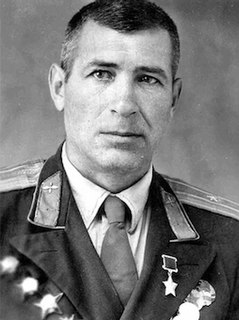 W
WGrigory Ivanovich Ges was a Soviet Air Force major who became a flying ace during the Korean War.
 W
WLeonid Nikolaevich Gobyato was a lieutenant-general in the Imperial Russian Army and designer of the modern, man-portable mortar.
 W
WKuzma Yevdokimovich Grebennik was a Red Army lieutenant general and Hero of the Soviet Union. Grebennik served in the Soviet Border Troops both before and after World War II. During World War II, he commanded the 15th and 37th Guards Rifle Divisions.
 W
WOleksandr "Oles" Terentiyovych Honchar was a Ukrainian and Soviet writer and public figure. He also was a veteran of World War II and member of the Ukrainian parliament.
 W
WGrigory Naumovich Kaminsky, was the 2nd First Secretary of Azerbaijan Communist Party, Soviet politician and one of founders of the health care system in The Soviet Union.
 W
WMykóla Oleksándrovyč Kapustjáns’kyj was a General in the army of the Ukrainian National Republic and one of the founders of the Organization of Ukrainian Nationalists. Kapustiansky was born in Yekaterinoslav Governorate in central Ukraine, then part of the Russian Empire. He fought in the Russian-Japanese War and in 1912 graduated from the General Staff Academy in Saint Petersburg, reaching the rank of colonel during the First World War. After the Revolution of 1917 Kapustiansky joined the Ukrainian units of the Russian army and rose rapidly in its ranks, becoming chief of staff of the First Division of the First Ukrainian Corps in August 1917, and in early 1918 chief of staff of the southwestern front. Under the Directory of the Ukrainian National Republic, he served as operations chief and then as general quartermaster of the Army of the Ukrainian National Republic. In 1920 he was promoted to brigadier general.
 W
WTihon Konstantinov was a Moldavian SSR and Ukrainian SSR politician.
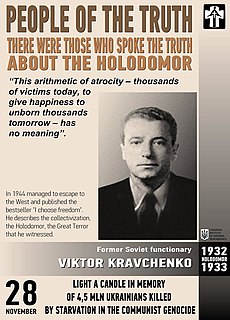 W
WViktor Andreevich Kravchenko was a Ukrainian-born Soviet defector, known for writing the best-selling book I Chose Freedom, published in 1946, about the realities of life in the Soviet Union.
 W
WLyudmila Stepanovna Kravets was a Senior Sergeant in the 63rd Guards Rifle Regiment in the 23rd Guards Rifle Division of the 3rd Shock Army on the 1st Belorussian Front during World War II. For her actions in the war, she was awarded the title Hero of the Soviet Union on 31 May 1945, and was the only woman in her regiment to be awarded the title.
 W
WArkhip Ivanovich Kuindzhi was a Russian landscape painter of Greek descent.
 W
WRobert Lisovskyi is Ukrainian artist and graphic designer, a follower of Mykhailo Boychuk and Heorhiy Narbut. He was specializing in various forms of graphic arts, particularly printmaking, book illustration, decorative and applied arts, scenography and design.
 W
WLeonid Davydovich Lukov was a Soviet film director and screenwriter. He directed 25 films between 1930 and 1963. Leonid Lukov was named People's Artist of the RSFSR in 1957 and awarded the Stalin Prize twice: in 1941 and 1952.
 W
WSergei Vladimirovich Lukyanov was a Soviet film and theater actor. He was a People's Artist of the RSFSR (1952) and the winner of two Stalin Prize of the second degree.
 W
WYury Kharitonovich Lutovinov was a Russian Bolshevik revolutionary and labor leader.
 W
WLyubov Trokhymivna Mala was a Soviet and Ukrainian therapist, Doctor of Medical Sciences, full member of the USSR Academy of Medical Sciences. She was the first female recipient of title Hero of Ukraine.
 W
WIvan Mefodyevich Managarov was a Soviet Army colonel general and a Hero of the Soviet Union who held field army command during World War II.
 W
WVasily Filippovich Margelov was a Red Army General who led the Soviet Airborne Troops (VDV) from 1954 to 1959 and from 1961–1979. Margelov modernized the VDV and was a Hero of the Soviet Union.
 W
WLudwig Christian Alexander Karl Martens was a Russian Marxist revolutionary, Soviet diplomat and engineer.
 W
WMykhailo Mykhailyk was a politician and lawyer of the Ukrainian Soviet Socialist Republic.
 W
WOsip Notovich was a Russian author, journalist, and publisher. He was born into a Jewish family in the city of Taganrog, studied at the Taganrog Boys' Gymnasium, and graduated from the law faculty of the Saint Petersburg University. In 1873-1874, he was the publisher and editor of the newspaper Novoe Vremya. In 1876 he acquired the newspaper Novosti, which he transformed into a political tribune.
 W
WChana Orloff was a French-Israeli Art deco and figurative art sculptor.
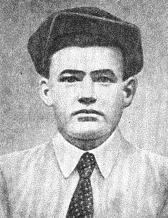 W
WMikhail Averyanovich Panikakha was a Red Army soldier. He was posthumously awarded the title Hero of the Soviet Union for destroying a German tank with two Molotov cocktails while on fire during the Battle of Stalingrad.
 W
WSophia Parnok was a Russian poet, journalist and translator. From the age of six, she wrote poetry in a style quite distinct from the predominant poets of her times, revealing instead her own sense of Russianness, Jewish identity and lesbianism. Besides her literary work, she worked as a journalist under the pen name of Andrei Polianin. She has been referred to as "Russia's Sappho", as she wrote openly about her seven lesbian relationships.
 W
WIvan Nikolaevich Perestiani was a Georgian/Soviet film director, script-writer and actor, and People's Artist of the Georgian SSR (1949). He was of Kefalonian Greek descent.
 W
WAlexander Pol was a Russian Imperial archaeologist, geologist, ethnographer and businessman of Baltic German descent. He is most well-known for discovering Kryvbas, a major iron ore region of Eastern Europe.
 W
WGalina Romanova was a Ukrainian doctor who was deported to Germany during World War II to provide medical care for forced laborers. She became involved with the German resistance against Nazism and was executed at Berlin-Plötzensee prison.
 W
WFanny "Bobbie" Rosenfeld was a Canadian athlete, who won a gold medal for the 100-metre relay and a silver medal for the 100-metre at the 1928 Summer Olympics in Amsterdam. She was named "Canadian woman athlete of the half-century" in 1949, and a star at basketball, hockey, softball, and tennis. She was named Canada's Female Athlete of the First Half-Century (1900–1950). She also was called Bobbie for her "bobbed" haircut. The Bobbie Rosenfeld Award is named in her honour. She was also inducted into the Ontario Sports Hall of Fame in 1996.
 W
WMaksim Zakharovich Saburov was a Soviet engineer, economist and politician, three-time Chairman of Gosplan and later First Deputy Premier of the Soviet Union. He was involved in the Anti-Party Group's attempt to displace Nikita Khrushchev in 1957.
 W
WKonstantin Apollonovich Savitsky was a Russian realist painter born in the city of Taganrog in the village Frankovka or Baronovka, named after former governor Otto Pfeilizer-Frank. Today this area is occupied by the Taganrog Iron and Steel Factory TAGMET.
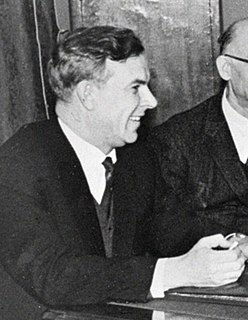 W
WVladimir Yefimovich Semichastny was a Soviet politician, who served as Chairman of the KGB from November 1961 to May 1967. A protégé of Alexander Shelepin, he rose through the ranks of the Communist Youth League (Komsomol).
 W
WBoris Yevdokimovich Shcherbina was a Soviet politician who served as a vice-chairman of the Council of Ministers from 1984 to 1989. During this period he supervised Soviet crisis management of two major catastrophes: the 1986 Chernobyl disaster and the 1988 Armenian earthquake.
 W
WBoris Yefimovich Shtein was a Soviet diplomat. He was a member of many Soviet delegations in the 1920s and 1930s and served as a diplomat at the United Nations in the 1940s. In later life Shtein dedicated himself to academic work as a professor and writer on the history of Soviet foreign relations. His name is also transliterated as Boris Stein or Boris Shteyn.
 W
WNadezhda Konstantinovna Sigida, née Malaxiano (1862–1889), was a Russian revolutionary, heroine of the Kara katorga tragedy of 1889.
 W
WDmitri Minaevich Sinodi-Popov was a Russian artist of Greek descent.
 W
WMykola Oleksiyovych Skrypnyk was a Ukrainian Bolshevik revolutionary and Communist leader who was a proponent of the Ukrainian Republic's independence, and led the cultural Ukrainization effort in Soviet Ukraine. When the policy was reversed and he was removed from his position, he committed suicide rather than be forced to recant his policies in a show trial. He also was the Head of the Ukrainian People's Commissariat, the post of the today's Prime-Minister.
 W
WWłodzimierz Sokorski was a Polish communist official, writer, military journalist and eventually a Brigadier General in the Soviet-dominated People's Republic of Poland. He was the minister of culture responsible for the implementation of the Stalinist doctrine in Poland during the darkest period of gross human rights violations committed by the state security forces. During World War II he escaped to the Soviet Union.
 W
WVolodymyr Sosiura was a Ukrainian lyric poet, writer, veteran of the Russian Civil War (1918-1920).
 W
WSokrates Starynkiewicz was a Russian general and the 19th president of Warsaw, between 1875 and 1892. During his presidency he ordered the construction of municipal water works as well as the tramway and telephone network in Warsaw.
 W
WSergey Ivanovich Syrtsov was a Soviet-Russian politician and statesman. Syrtsov is best remembered for having served as the head of the republic government of the Russian SFSR from 1929 until his removal in 1930 for political plotting for the removal of Joseph Stalin as head of the All-Union Communist Party (bolsheviks).
 W
WAleksandr Vishnevsky was a Russian actor and one of the founding members of the Moscow Art Theatre.
 W
WMykola Kindratovych Voronyi was a Ukrainian writer, poet, actor, director, and political activist. He acted in the troupes of Marko Kropyvnytskyi and the Ruska Besida Theatre. Voronyi was a founding member of the Central Rada of Ukraine. He was also a founder of the Ukrainian National Theater in 1917.
 W
WKliment Yefremovich Voroshilov, popularly known as Klim Voroshilov, was a prominent Soviet military officer and politician during the Stalin era. He was one of the original five Marshals of the Soviet Union, along with Chief of the General Staff of the Red Army Alexander Yegorov, and three senior commanders, Vasily Blyukher, Semyon Budyonny, and Mikhail Tukhachevsky. The KV series of tanks was named after him.
 W
WHillel Yaffe (1864–1936) was a Russian Jewish physician and Zionist leader who immigrated to Palestine during the First Aliyah. He was instrumental in curing malaria among the Jewish population of Palestine in the early 20th century, and helped improve the medical infrastructure of the Yishuv during the same period. The Hillel Yaffe Medical Center in Hadera is named after him.
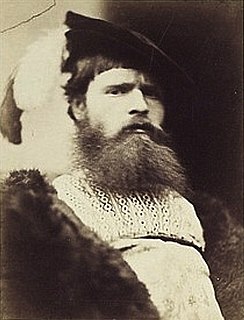 W
WWilliam Frederick Yeames was a British painter best known for his oil-on-canvas "And When Did You Last See Your Father?", which depicts the son of a Royalist being questioned by Parliamentarians during the English Civil War.
 W
WAndrei Alexandrovich Zhdanov was a Soviet Communist Party leader and cultural ideologist. After World War II, Zhdanov was thought to be the successor-in-waiting to Joseph Stalin, but he died before Stalin. He has been described as the ‘propagandist-in-chief’ of the Soviet Union in the period 1945 to 1948.